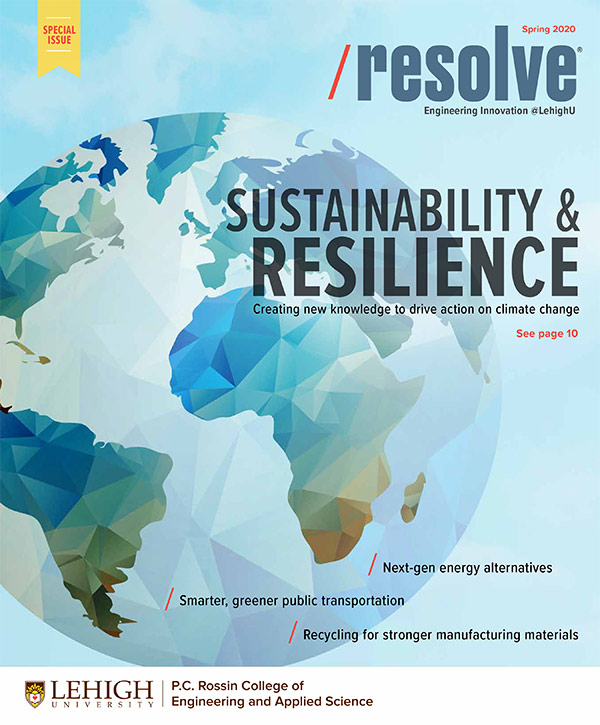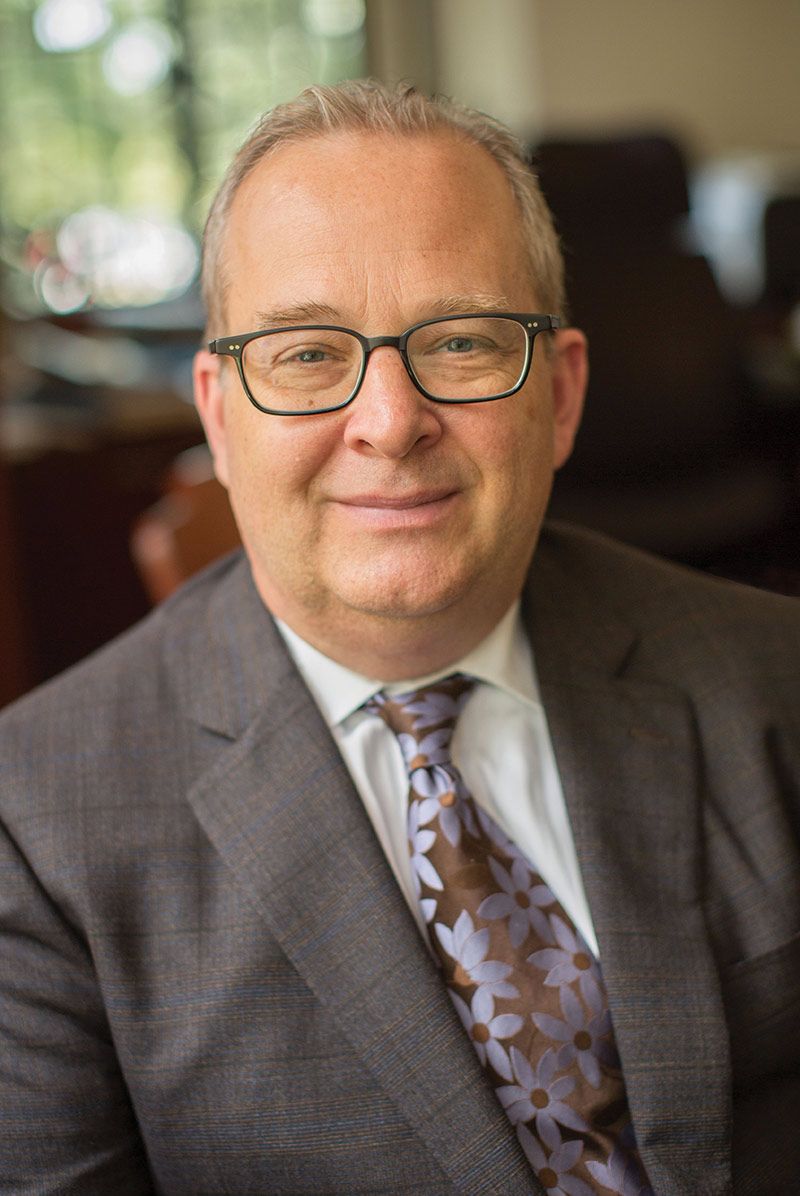
As our world grapples with myriad challenges presented by the interconnected ecological, social, and economic consequences of climate change, one thing is clear: Addressing the needs of a growing human population in an environment of finite resources will require contributions from every corner of the science and engineering community. And we will need to work with our colleagues in associated pursuits to innovate and refine solutions for generations to come.
Innovative approaches to climate change also shine through in our Q&A with proud alumnus Paul Camuti ’83. Over the years, Paul has been a tireless supporter of our college, including as chair of the Dean’s Advisory Council. In the interview, he delves into his leadership roles at Ingersoll Rand and its “pure-play climate innovation company,” Trane Technologies, working to fuse the interests of corporate sustainability and profitability.
This issue’s Rising Star features a Lehigh-led, multinational, multiinstitutional exploration of the interplay among society’s competing interests in the provision of food, energy, and water on a global scale. The project is driven by recent National Science Foundation CAREER award recipient Ethan Yang. He joins a distinguished group: Nearly one-third of Lehigh’s engineering faculty lay claim to this prestigious award, with an astounding 16 achieving this milestone in the past five years.
Of course, long-term advances in the face of climate change must also include redoubled efforts to attract the best and brightest into advanced science and engineering studies, as evident in our Educational Innovation article. I’m particularly inspired by the creative philanthropic leadership of our friends at The Rossin Foundation, who have recently partnered with us to support early-career doctoral students as they develop and refine their individual re-search projects.
Our recently launched Pasteur PhD Partners (P3) Fellowship represents fresh thinking and a new approach to the network of support and resources around doctoral students. Developed in conjunction with colleagues at Corning and the NSF, P3 adds a modern twist to industry-academia engagement—and may serve as a model for a new form of partnership among these communities on a national scale.
I hope you enjoy this special issue of Resolve; please drop me a note to share your thoughts and comments. Thank you as always for your interest in Lehigh Engineering!

Stephen P. DeWeerth, Professor and Dean
P.C. Rossin College of Engineering and Applied Science
steve.deweerth@lehigh.edu

